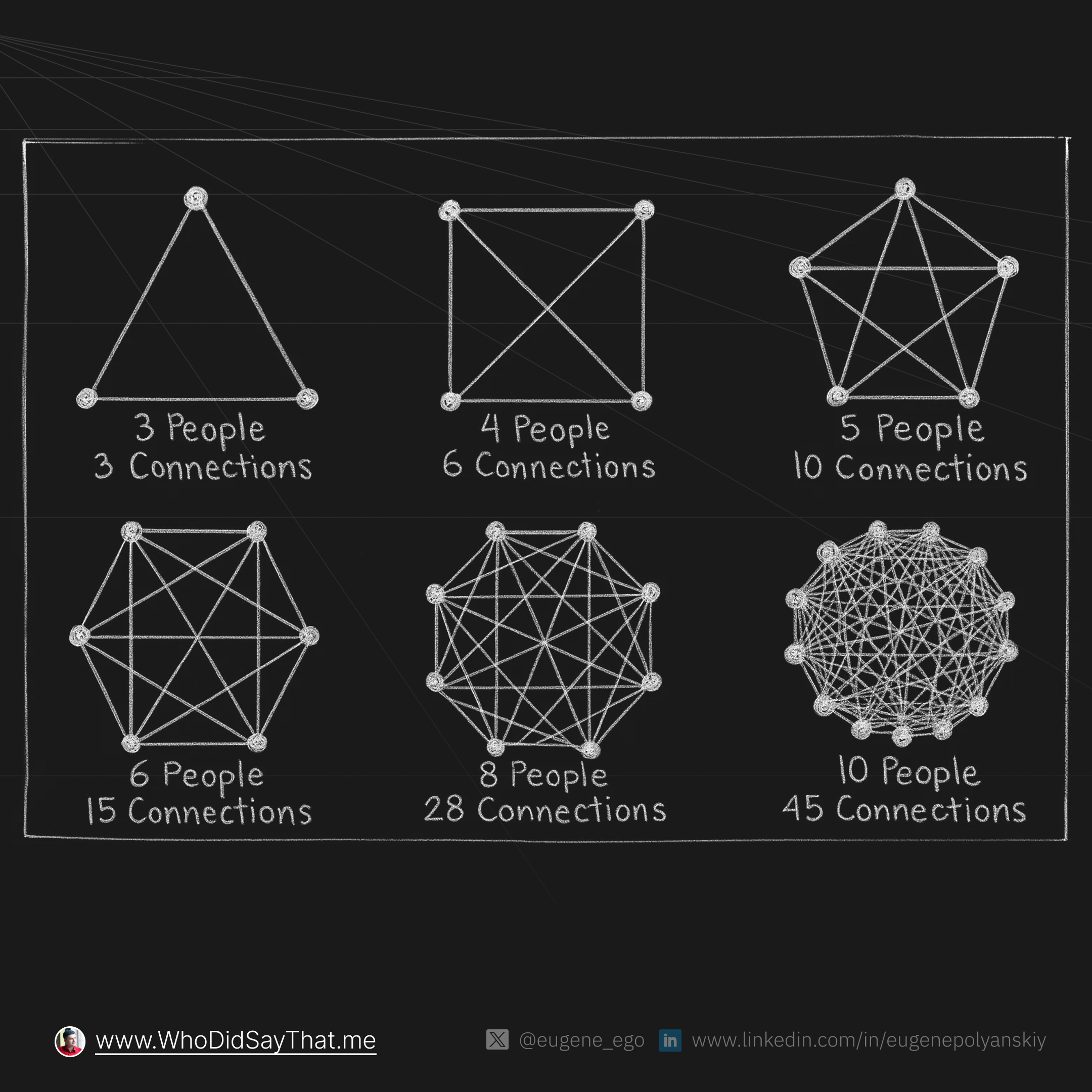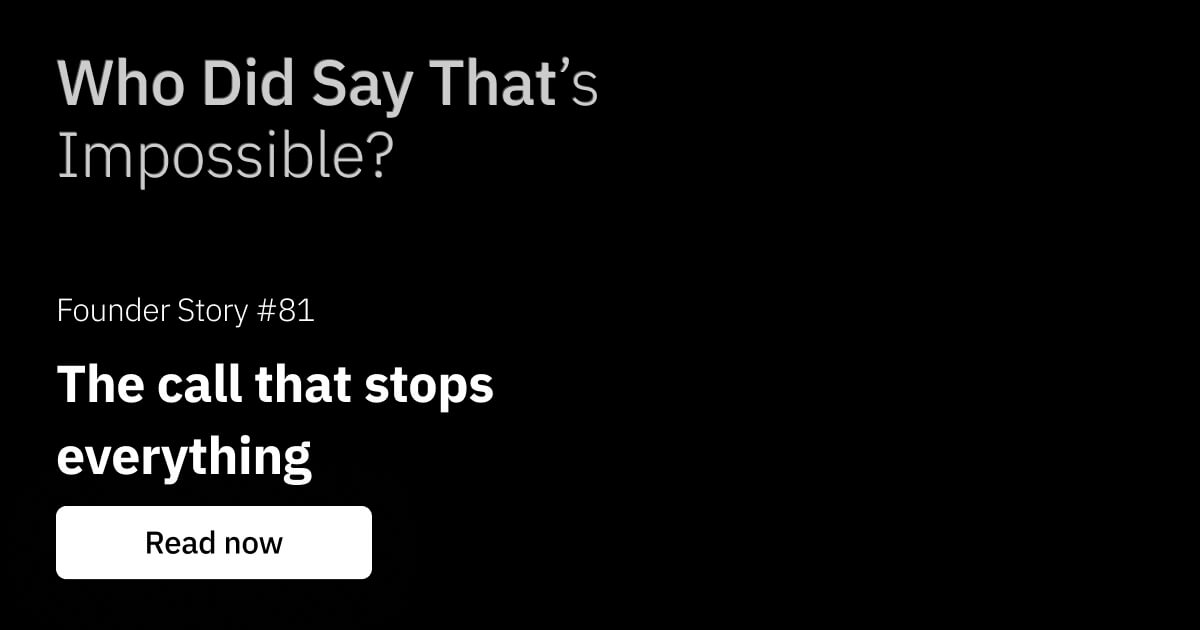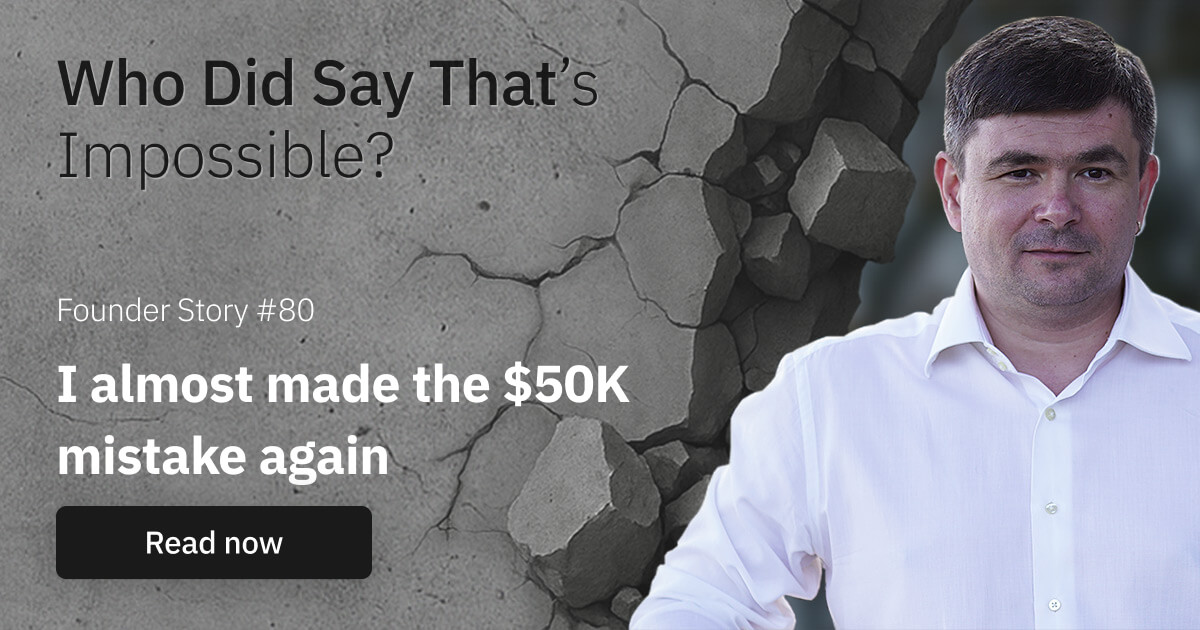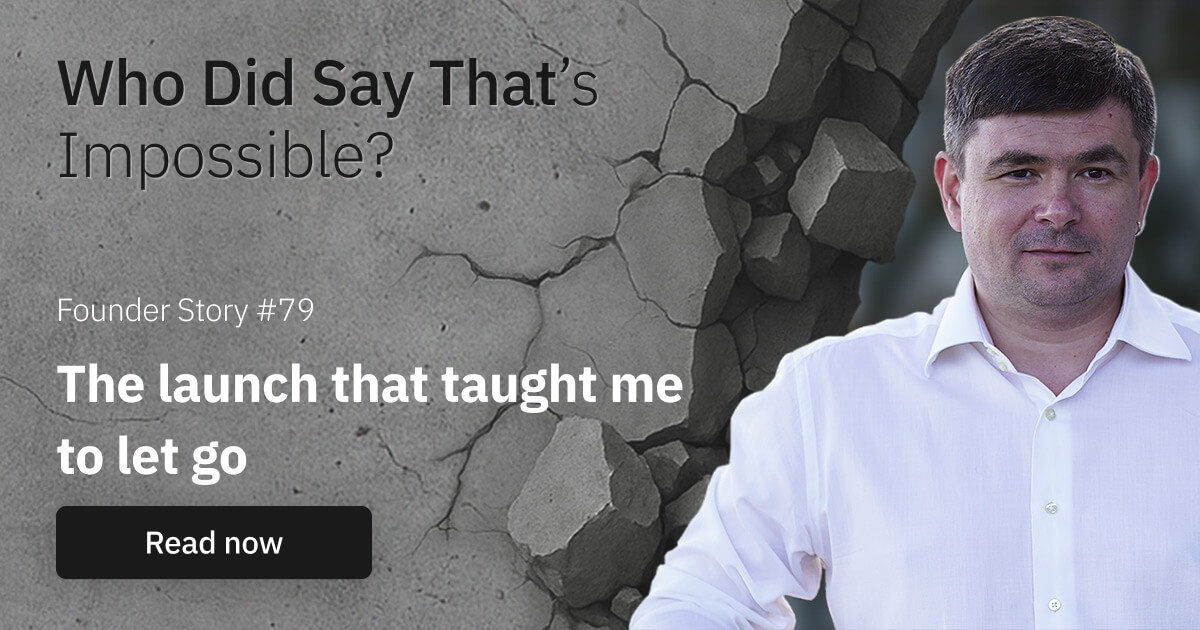Why smaller teams feel bigger
Or minute of building warmth — before you drown in headcount
I’ve always believed that business is, at its core, about people.
Not just about transactions, not just about efficiency, but about real, human connection.
In the early years, I knew every single person by name.
I knew whose kid was starting school, whose mother was ill, who had a birthday coming up.
I genuinely cared, and that wasn’t just a management tactic — it was what made me feel alive inside the business.
But as we grew, I started to notice a quiet fracture.
There’s a simple reason for that, which science has explained well: Dunbar’s circles.
Humans can deeply connect with only about 150 people in total, across all areas of life.
But truly close, emotional connections? That circle is even smaller — maybe 15 to 20.
When your company crosses that invisible line, every new person adds exponentially more connections, dependencies, and emotional threads.
It's not just about you knowing them.
It’s about them knowing each other, about the web of micro-relationships you can’t possibly track or influence directly anymore.
Systems can’t replace warmth
As our agency grew to 80 full-time staff plus dozens of contractors and partners, I built sophisticated systems.
We had strong documentation, defined processes, automated handoffs.
We created inner leadership circles — the first employees who grew with me from day one.
We built loyalty programs, internal mascots, fun rituals. I introduced what we called "ego cookies" (inspired by "The Great Game of Business") to recognize and reward the real super-ninjas, those who went above and beyond, who carried the mission forward even when no one was watching.
It worked. For a while.
But inside, I was struggling. Because systems can help you scale efficiency — but they can’t scale soul.
The bigger we got, the more I realized I had lost that closeness I so deeply valued.
I started forgetting names.
I stopped knowing what truly mattered to each person.
And even though the business was thriving on paper, I felt emptier with every new office, every new floor plan, every new payroll sheet.
Founders often glorify big teams.
More people means more power, more reach, more stability — or so we think.
But if your essence is warmth and closeness, if you thrive on knowing your people and sharing moments with them, growth in headcount becomes a silent betrayal of your own values.
When I finally exited the agency and shifted into consulting, I felt a wave of relief I hadn’t expected.
Suddenly, I knew everyone again.
I could be fully present, fully human.
I was no longer just a strategist or a "founder-figure." I was a person, in touch with other people.
And though I still use and teach systems (they are essential for any business), now they serve a different role: they protect my energy and relationships, rather than replace them.

Connection as a choice
Some founders thrive in large, multi-layered organizations. They love orchestrating big structures, working through complex hierarchies.
And that’s fine — but it requires a different personality, a different "why."
For me, the lesson was clear: I care more about connection than empire.
And while automation and systems can make even large teams function smoothly, they can’t replace the invisible threads that make a team feel like a family.
Choosing a small team wasn’t about stepping back or playing it safe.
It was about preserving my integrity and the emotional warmth that matters more to me than any revenue milestone.
People don’t just work for money.
They stay because they feel seen, valued, and safe.
Remembering a birthday, congratulating a teammate on their kid’s achievement, sending a small gift for a wedding — these are not "extra perks."
They are the small moments that define whether a culture feels human or mechanical.
When teams stay small and intentional, these gestures are natural.
When they grow beyond your emotional capacity, they become mechanical checkboxes at best — or vanish completely.
And the choice is yours.
Disclaimer.
Every business has its nuances, and every founder has their unique context and resources. Whether or not my advice applies depends on your situation, experience, and needs. But one thing is universal—use your brain.
Think about how to apply the advice in your context before acting.
Your way.
- Eugene
Join the “most offbeat” Businessletter on entrepreneurship.

Hi, I’m Eugene.
20 years later — 80 people, 3 continents, 7-figure revenue.
But for many years, I was the bottleneck in my own business.
Now I help founders escape the same trap. Through systems that actually work, not theory.
I write weekly: operational war stories, decision systems, and lessons learned the hard way.
For founders who want to build without burning out.
More Stories
Founder Stories

The call that stops everything
Or minute of realizing your business isn't ready for this

I almost made the $50K mistake again
Or minute of catching myself repeating a dangerous pattern


